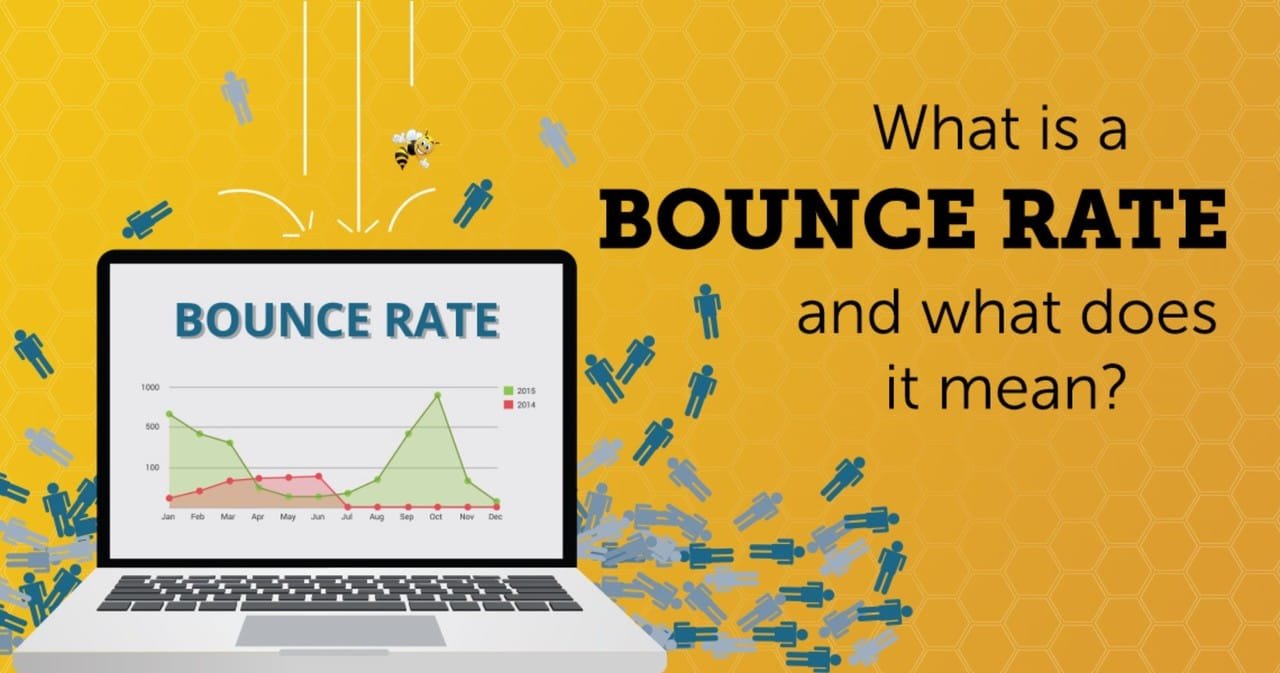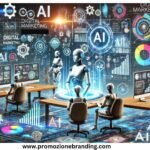
“AI Innovations: 5 Game-Changing Strategies Digital Marketing Agencies Are Leveraging in 2024”
Artificial Intelligence (AI) advancements are causing a massive shift for agencies in the constantly changing field of digital marketing. By 2024, artificial intelligence (AI) has evolved from a futuristic idea to a key element that is revolutionizing business processes, customer interaction, and strategy. The industry is changing in novel and fascinating ways as digital marketing firms keep investigating AI’s potential. We’ll examine five crucial tactics that agencies are doing in this article to maintain their competitiveness and provide customers with improved outcomes.
1. AI-Driven Personalization: Tailoring Content for Every Individual
The emergence of hyper-personalization has been one of the biggest changes in digital marketing. Agencies can now produce highly customized content that directly addresses each user’s requirements and interests thanks to AI. Agencies may segment audiences with previously unheard-of precision by using sophisticated algorithms to evaluate enormous volumes of consumer data in real-time.
This change enables the transmission of dynamic material that changes according to user behavior. AI enables agencies to optimize customer experiences, resulting in increased engagement and conversion rates, whether through targeted advertisements, tailored emails, or website content. The difficulty, though, is striking a balance between automation and genuineness; advertising that rely too much on AI may come across as unduly robotic, which could turn off some consumers.
2. AI-Powered Analytics: Unlocking Deeper Insights for Smarter Decisions
Agencies are using AI-powered analytics in 2024 in order to extract more profound insights from client data. AI technologies can process and analyze data far more quickly than conventional techniques, giving marketers a remarkably accurate understanding of consumer patterns, behavior, and pain concerns.
AI is being used by agencies to forecast future trends, make data-driven decisions, and maximize return on investment by optimizing campaigns. Although these insights are priceless, there is a possible drawback: an excessive dependence on statistics may lead to campaigns that are overly metrics-focused, perhaps losing out on the emotional bond that fosters enduring brand loyalty. Achieving success requires finding the ideal mix between creativity and data.
3. Chatbots and Customer Service Automation: 24/7 Engagement
Chatbots driven by AI are transforming customer service in digital marketing. They guarantee that firms can interact with potential customers around-the-clock without the need for human interaction by offering prompt answers to consumer questions. These artificial intelligence (AI) applications can answer basic questions, help consumers make judgments about what to buy, and even make personalized product recommendations.
Chatbots have limitations even if they are unquestionably a fantastic tool for efficiency. Customers may grow irate if AI is unable to fully satisfy their expectations, and complex problems or individualized customer care may still require human participation. To keep customers happy, agencies need to carefully balance the combination of human interaction and AI-driven automation.
4. AI in SEO: Enhancing Search Engine Optimization with Smart Algorithms
Digital marketing has always relied heavily on search engine optimization (SEO), and in 2024, artificial intelligence (AI) is changing how agencies approach SEO tactics. In order to help marketers better optimize their clients’ websites, artificial intelligence (AI) solutions can anticipate algorithm changes, spot content shortages, and offer keyword insights.
Furthermore, natural language processing (NLP) and other AI-powered tools are increasing the precision of search results, elevating SEO tactics. But SEO tactics are not infallible, and it can be difficult to stay on top of algorithms that are always evolving. Campaigns could be ineffectual if AI tools are used exclusively without human experience because they may misread search intent.
5. AI-Enhanced Creativity: Generating Compelling Ad Campaigns
AI is also having a big impact on digital marketing’s creative side. Marketing agencies now frequently use tools that create graphic layouts, video scripts, and ad copy. AI saves time and money by automating the creative process, which enables agencies to produce more advertisements in less time.
AI can provide excellent work based on data, but it might not have the same emotional nuance and inventiveness as human marketers. In order to strike a balance between efficiency and creativity, agencies must make sure that AI-generated content is consistent with brand voice and values. Making sure AI enhances human creativity rather than replaces it is the true difficulty.
Conclusion: Embracing the Future of AI in Digital Marketing
Digital marketing firms are negotiating a world of limitless opportunities and difficulties as they adjust to AI advancements in 2024. While AI has undoubtedly increased productivity, customization, and decision-making, there are also concerns associated with an over-reliance on data and automation. In order to succeed in this AI-driven world, agencies need to properly integrate these technologies while preserving the crucial human element that fosters creativity, innovation, and client connections.
How agencies blend AI tools and human talent will determine the direction of digital marketing in the future. Digital marketing companies can stay ahead of the curve and continue to produce campaigns that connect with their clients and audiences by utilizing AI to enhance service delivery, optimize campaigns, and make more informed decisions.
Are you prepared to take your marketing efforts to the next level with AI? The time to adapt and innovate is now.
For more Information visit our website – https://promozionebranding.com/
FAQ: Adapting to AI Innovations in Digital Marketing
1. How are digital marketing agencies using AI in 2024?
Digital marketing agencies in 2024 are using AI in several ways, such as for personalized content creation, enhanced SEO strategies, AI-powered analytics, chatbots for customer service, and automating the creative process for ad campaigns. AI tools help agencies gather insights from data quickly, optimize marketing strategies, and engage with customers in real time.
2. Are AI-powered analytics tools effective for decision-making?
Yes, AI-powered analytics tools provide deeper insights by processing large amounts of data quickly and accurately. These tools help agencies understand consumer behavior, predict trends, and optimize campaigns for better performance. However, while data-driven decisions are valuable, relying solely on AI insights without human judgment can sometimes overlook the emotional aspects of marketing.
3. What are the benefits of AI-driven personalization in digital marketing?
AI-driven personalization allows agencies to tailor content and ads to individual users based on their behaviors, preferences, and past interactions. This leads to better engagement, higher conversion rates, and an overall more personalized customer experience. By analyzing user data in real time, AI helps create relevant and engaging content that resonates with audiences.
4. How do chatbots improve customer service in digital marketing?
AI-powered chatbots provide 24/7 support to customers by answering inquiries, guiding them through purchases, and offering tailored recommendations. They improve efficiency by automating routine tasks and engaging with customers instantly. However, for complex issues, human intervention may still be required, as chatbots can have limitations in addressing nuanced queries.
5. What role does AI play in SEO strategy in 2024?
AI enhances SEO by helping agencies predict search engine algorithm changes, identify content gaps, and provide valuable keyword insights. Natural Language Processing (NLP) also allows for more precise content optimization, improving search results accuracy. However, SEO still requires human expertise to ensure alignment with user intent and to adapt to constantly changing algorithms.








